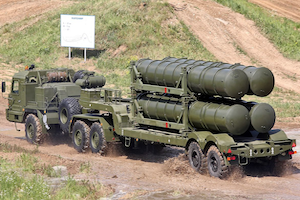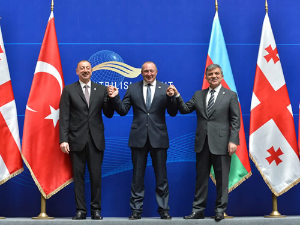Turkey's Purchase and the Path to a Post-American Alliance Architecture
By Micha’el Tanchum
April 22, 2019
Turkey's taking delivery of the Russian S-400 air and missile defense system in July 2019 is a momentous strategic step. It reflects the realignment of Ankara's interests away from Washington and toward Moscow. Washington's planned punitive measures could precipitate Turkey’s exit from the NATO alliance. Unless concessions are forthcoming from the U.S. to induce Turkey to reciprocate by finding a face-saving way out of installing the S-400 system, a strategic divorce may not be averted.

A Collective Security Alliance Takes Shape in the South Caucasus
By Micha’el Tanchum (vol. 7, no. 17 of the Turkey Analyst)
The defense ministers of Turkey, Azerbaijan, and Georgia conducted their first trilateral summit in mid-August, adopting specific measures to regularizetheir defense cooperation. Ankara’s participation in the nascent South Caucasus collective security alliance is motivated by Turkey’s ambition to become a leading Eurasian energy and commercial transportation hub and its need therefore to secure the Trans-Anatolian Natural Gas Pipeline and the Baku-Tblisi-Kars railway by providing a credible deterrent against increasing Russian interference in the region.




